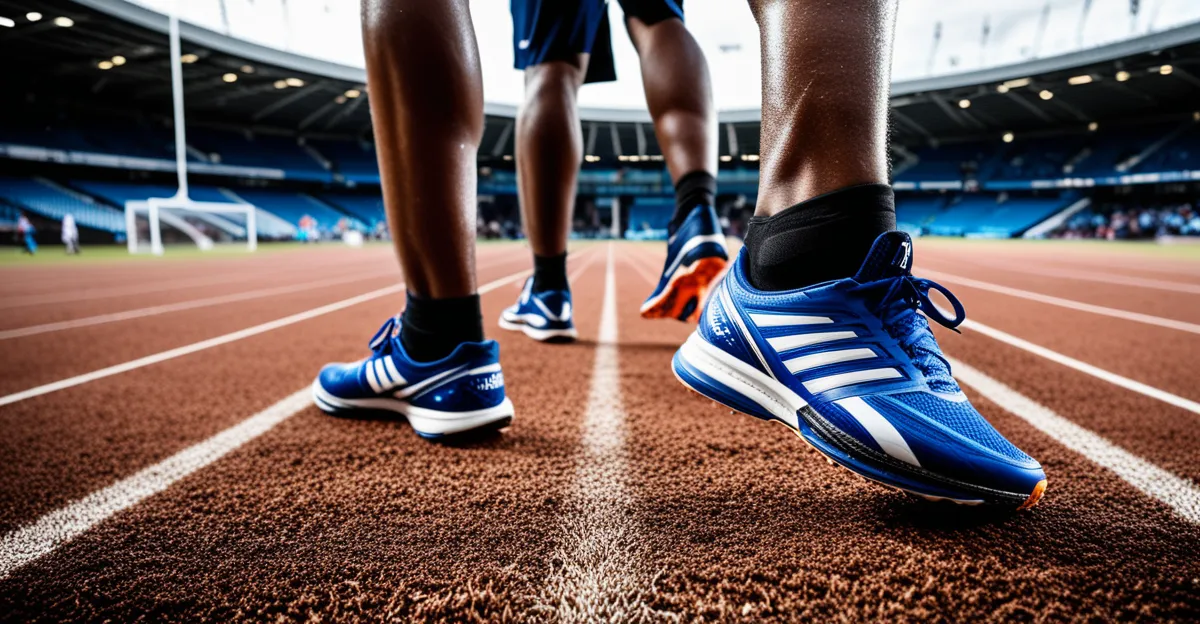Key Elements of UK Sports Success
The UK sports achievements stem from a combination of well-structured sports program models and a culture fostering athletic excellence. Prominent UK sports programs, such as those supporting Olympic disciplines and football academies, have gained global recognition for their systematic approaches. These programs emphasize a balance between rigorous training and holistic athlete development.
Core methodologies contributing to these successes involve scientific training regimens, nutrition planning, and mental conditioning. UK sports bodies often integrate multi-disciplinary teams including physiotherapists, psychologists, and performance analysts to optimize athlete readiness. This comprehensive framework encourages peak physical and psychological preparation.
Also to discover : How do UK sports organizations handle athlete injuries?
Historically, milestones like the UK’s performance in successive Olympic Games have shaped international perceptions of UK sports as a serious contender. The consistent high rankings and medal tally demonstrate the effectiveness of the underlying system. Moreover, UK sports achievements have inspired other nations to study and sometimes replicate these program models, highlighting their global impact.
In summary, the synergy between structured programs, coaching expertise, and athlete-centered approaches forms the backbone of UK sports success. These elements drive continual improvements and set benchmarks for athletic excellence worldwide.
Topic to read : How is technology transforming coaching in UK sports?
Influential Coaching Techniques and Approaches
Innovative UK coaching techniques have been instrumental in elevating athlete performance and fostering development. British coaches frequently emphasize athlete-centered training, focusing on personalized progression rather than one-size-fits-all methods. This approach encourages athletes to maximize their potential while maintaining mental resilience.
“Sports leadership” within the UK also plays a vital role in shaping outcomes. Effective leaders create environments promoting trust, open communication, and accountability. These qualities enhance motivation and cohesion, critical for high-stakes competitions.
How does UK sports leadership improve athlete performance? By combining strategic vision with hands-on involvement, UK leaders ensure training programs remain adaptive and scientifically informed. This creates a culture of continuous improvement and innovation.
Notable coaching success stories include the transformation of athletes in Olympic disciplines and football, where tactical ingenuity and psychological support merge. Coaches work alongside multidisciplinary teams, using data-driven insights to fine-tune techniques. This collaborative and progressive model sets UK coaching apart.
In sum, the synergy between advanced coaching philosophies and dynamic leadership drives British sports successes. The results are athletes equipped for peak performance and sustainable growth in competitive arenas.
Athlete Talent Identification and Development Pathways
Talent identification and sports talent development in the UK rely on highly structured, evidence-based frameworks designed to spot potential early and nurture it systematically. UK youth programs play a pivotal role, providing accessible entry points with rigorous assessment criteria that measure physical, technical, and psychological attributes. These frameworks are not ad hoc but based on longitudinal data that track athlete progression, ensuring promising individuals receive tailored support.
Development programs bridge the gap between grassroots participation and elite competition by offering staged progression pathways. Athletes move through age-appropriate training environments where emphasis is placed on skill acquisition, physical conditioning, and mental resilience. The use of mentoring systems and multidisciplinary expertise helps smooth this transition, reducing dropout rates at critical career phases.
Best practices in nurturing long-term athletic potential include personalized training plans, consistent performance monitoring, and early integration of competition experience to build confidence. By fostering an environment that balances challenge and support, the UK sports talent development model ensures athletes can maximize their potential sustainably. Such structured pathways have consistently contributed to UK sports achievements, reinforcing the country’s reputation for producing world-class competitors.
UK Innovations: Sports Science and Technology
UK sports innovation plays a pivotal role in advancing athlete performance through cutting-edge integration of sports science and technology. A key component is the use of performance analytics, which offers precise insights into training effectiveness, injury prevention, and recovery strategies. By leveraging data-driven assessments, UK sports programs optimize athlete conditioning and tailor interventions to individual needs.
Technological advancements such as wearable devices, motion capture systems, and biomechanical sensors are routinely incorporated into training regimes. These tools collect real-time metrics on movement patterns, workload, and physiological responses, enabling coaches and scientists to refine techniques and minimize injury risks.
How exactly does performance analytics enhance competitive performance? It systematically identifies strengths and weaknesses, supports evidence-based decisions, and accelerates adaptive coaching practices. This integration fosters a feedback loop, continuously elevating athlete readiness.
Case studies from UK Olympic and professional sports demonstrate substantial gains in efficiency and outcomes after adopting these innovations. The synergy of sports science and technology not only contributes to immediate performance improvements but also guides long-term athlete management. This positions UK sports at the forefront of global sports innovation.
Transferring UK Sports Strategies Globally
The global sports strategies landscape benefits immensely from UK sports achievements, as many nations seek to emulate the proven sports program models that drive British success. What lessons do other countries gain from UK frameworks? The UK’s emphasis on structured athlete development, scientific training, and multidisciplinary support offers a replicable blueprint adaptable across diverse sporting environments.
How should global sports programs customise UK methodologies effectively? Strategic adaptation involves aligning core UK principles—such as data-informed training and holistic athlete care—with local cultural and infrastructural specifics. This ensures the methods resonate and remain practical, avoiding one-size-fits-all pitfalls.
Key recommendations for successful international adoption include:
- Engaging stakeholders at multiple levels to foster ownership;
- Incorporating flexible progression pathways tailored to regional athlete pools;
- Prioritizing education of coaches and sports leaders in UK-inspired techniques.
These adjustments, grounded in the UK’s experience, enable sustained athletic excellence worldwide. Such strategy adaptation also encourages innovation, as global programs blend UK insights with indigenous knowledge, creating enriched sports ecosystems.
In essence, the UK influence abroad extends beyond academic models to real-world applications capable of transforming competitive standards internationally.
Case Studies: Global Impact of UK Sports Approaches
UK sports case studies clearly illustrate the international impact of British sports program models, demonstrating successful real-world applications across various countries. For instance, nations adopting UK frameworks have reported enhanced athlete development pathways and improved performance outcomes in Olympic disciplines. How do these UK sports case studies prove effective? They provide measurable evidence that structured, data-driven approaches combined with multidisciplinary support lead to sustained competitive advantages internationally.
One notable success story involves a European country that integrated UK-inspired talent identification and coaching methodologies, resulting in a surge of elite athletes progressing to world championships. This example highlights how UK sports achievements offer transferable benefits when adapted appropriately to local contexts.
Evaluation of long-term effects from such adoptions shows improved athlete retention, elevated medal tallies, and more efficient resource allocation, confirming the UK influence abroad extends beyond theoretical models. Furthermore, the sharing of best practices encourages global collaboration, enriching the overall sports ecosystem.
These case studies underscore the adaptability and resilience of UK sports innovations, reinforcing their value in shaping global sports policies and enhancing athletic excellence worldwide.



